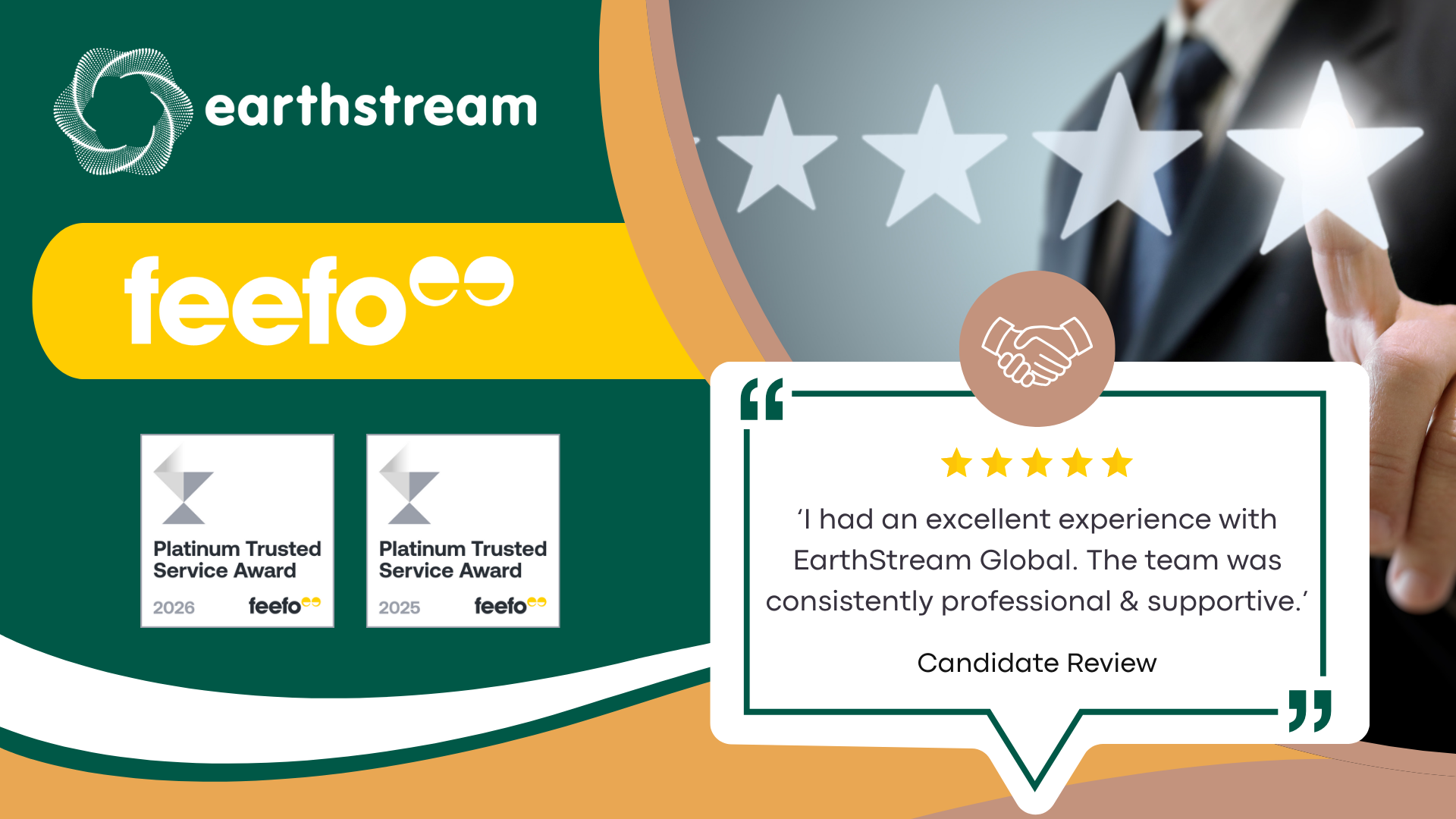insights & resources
Scroll to discover

News
EarthStream Global Retains Feefo Platinum Status for the 2nd Year Running
We’re proud to announce that we have retained Feefo Platinum status for the second consecutive year, recognising our continued commitment to service excellence across the global energy and engineering markets. The Feefo Platinum Trusted Service Award is based on independent, verified feedback, and is awarded to companies that maintain a minimum 4.5/5 rating for 3 consecutive years. Retaining Platinum status again highlights the strength of our client partnerships and the quality of our delivery across the Renewables, Power & Grid, and Industrial sectors. Looking ahead, our focus remains on building long-term relationships, understanding complex project needs, and continuously improving how we support...
categories
Show All
Blogs
Reports
News

News
3 min read
EarthStream Global Retains Feefo Platinum Status for the 2nd Year Running

Blogs
5 min read
How Green Jobs Are Changing the World

News
2 min read
EarthStream Shortlisted at the British Recruitment Awards 2025

Reports
4 min read
EarthStream Global Salary Guide 2025

News
2 min read
EarthStream Shortlisted at the 2025 Recruiter Awards

Blogs
5 min read
The AI Data Centre Jobs Boom: Industry Growth and Career Opportunities

News
3 min read
EarthStream Global Achieves Platinum Trusted Service Award

Blogs
Building the Green Workforce of Tomorrow: Bridging the Skills Gap for a Sustainable Future

News
2 min read
Xcede Group Win at the TIARA Awards

News
2 min read
EarthStream Global Nominated at the British Recruitment Awards

Blogs
5 min read
Power Your Career: Expert Advice for Thriving in the Renewable Energy Sector

News
2 min read
Xcede Group Makes the Fast 50 List Again
1 - 3